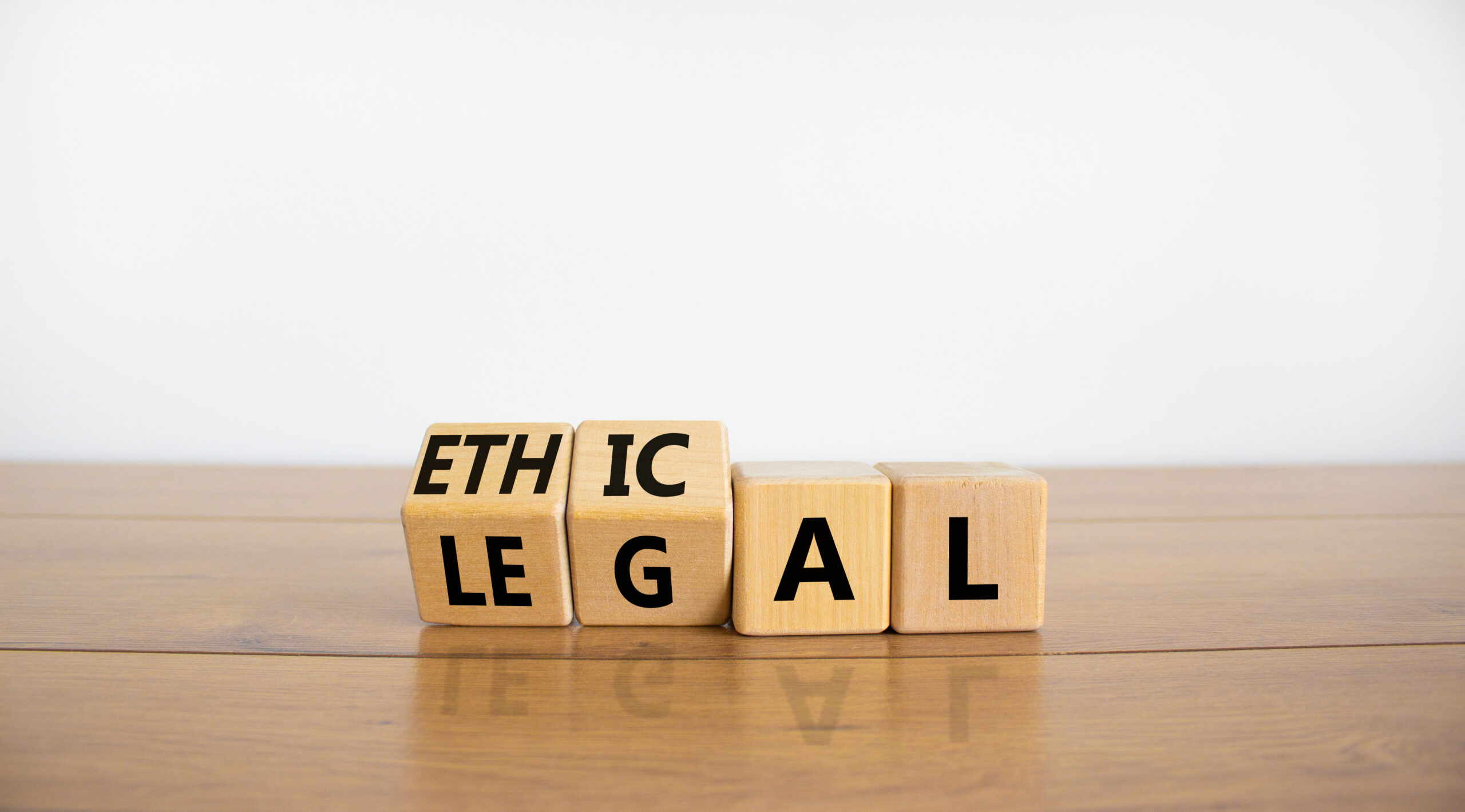Know when to ‘Just Say No’
Know when to ‘Just Say No’
By Sari W. Montgomery
In the wake of recent well-publicized scandals involving clients using lawyers’ services to facilitate crimes, including money laundering and terrorist financing, the American Bar Association (ABA) has amended the Model Rules of Professional Conduct to provide lawyers with additional guidance on how to avoid becoming involved, either wittingly or unwittingly, in a client’s conduct which may be criminal or fraudulent.
The leak of millions of documents in 2021, dubbed the Pandora Papers, revealed the extent to which foreign and domestic individuals and entities are using financial institutions, property acquisition, trusts, and other investment vehicles in the United States to hide assets and engage in other criminal or fraudulent conduct. The involvement of lawyers and other professionals in facilitating these transactions has brought significant scrutiny on the legal profession by Congress, the U.S. Treasury Department, and other regulatory agencies.
Model Rule 1.2(d) has long prohibited lawyers from advising clients to engage in or assisting clients in conduct the lawyer knows is criminal or fraudulent. But how does a lawyer “know” if the transaction is criminal or fraudulent? In 2020, even prior to the Pandora Papers leak, the ABA issued Formal Ethics Opinion 491 to help lawyers answer that question. That opinion specified that, as defined in the Rules of Professional Conduct, knowledge may be inferred from circumstances surrounding a representation, and that a lawyer may not be “willfully blind” to, or “consciously avoid” facts which may indicate that the client seeks to use the lawyer’s services for criminal or fraudulent activity. The opinion also advised that the Rules of Professional Conduct may require a lawyer to further inquire into the circumstances of the representation if the lawyer suspects that the client seeks to use the lawyer’s services for criminal or fraudulent conduct, in order to avoid knowingly counseling or assisting a crime or fraud.
Although, as the opinion notes, the duty to inquire and assess has always been implicit (how else would a lawyer know what the client wanted the lawyer to do and to determine whether the lawyer could accept the representation?), the ABA’s recent amendment to the black letter and comments to Model Rule 1.16 make this obligation explicit. Specifically, Rule 1.16(a)(4) now states, in relevant part:
A lawyer shall inquire into and assess the facts and circumstances of each representation to determine whether the lawyer may accept or continue the representation. Except as stated in paragraph (c), a lawyer shall not represent a client or, where representation has commenced, shall withdraw from the representation of a client if. . .the client or prospective client seeks to use or persists in using the lawyer’s services to commit or further a crime or fraud, despite the lawyer’s discussion pursuant to Rules 1.2(d) and 1.4(a)(5) regarding the limitations on the lawyer assisting with the proposed conduct.
Importantly, the comments clarify that the extent of inquiry and assessment required will vary for each representation depending on the level of risk posed. The new comments also identify factors a lawyer should consider when determining the level of risk a representation may involve, including: (i) the identity of the client, such as whether the client is a natural person or an entity and, if an entity, the beneficial owners of that entity; (ii) the lawyer’s experience and familiarity with the client; (iii) the nature of the requested legal services; (iv) the relevant jurisdictions involved in the representation (for example, whether a jurisdiction is considered at high risk for money laundering or terrorist financing); and (v) the identities of those depositing into or receiving funds from the lawyer’s client trust account, or any other accounts in which client funds are held.
The comments provide additional guidance by including examples of situations that might trigger further inquiry and assessment. For example, if a client traditionally uses a lawyer to acquire local real estate through the use of domestic limited liability companies, with financing from a local bank but then asks the lawyer to create a multi-tier corporate structure, formed in another state to acquire property in a third jurisdiction, and requests to route the transaction’s funding through the lawyer’s trust account. Another example is when, during the course of a representation, a new party is named or a new entity becomes involved.
Although several of the Model Rules of Professional Conduct touch on a lawyer’s obligation not to assist clients in conduct the lawyer knows is criminal or fraudulent, it is no accident that the above clarifications and amendments were made to Rule 1.16, thus re-emphasizing a lawyer’s duty not to take on such an engagement, or to withdraw if the representation has already been undertaken. Despite the fact that these obligations are really nothing new, these changes to the Model Rules and its comments should remind lawyers of the importance of appropriately vetting clients, and of just saying “no” to a representation if there are too many red flags. The risk of having to defend against potential disciplinary and/or criminal charges that can result from assisting a client’s crime or fraud is just not worth it.
![]() Sari Montgomery is a partner at Robinson, Stewart, Montgomery & Doppke in Chicago, Ill. Her practice involves representing attorneys in legal ethics and professional responsibility proceedings. She can be reached at [email protected].
Sari Montgomery is a partner at Robinson, Stewart, Montgomery & Doppke in Chicago, Ill. Her practice involves representing attorneys in legal ethics and professional responsibility proceedings. She can be reached at [email protected].
Share this story, choose a platform
Brought to you by BridgeTower Media
Free Weekly Newsletter
Recommended content
Reputational Management: Why values-driven communication protects law firm reputation
Reputational Management: Why values-driven communication protects law firm reputation By Gina F. Rubel and Elizabeth Ogilvie In volatile times, values are not abstract [...]
How to challenge effectively (even when you have less power)
Learning to tactfully challenge a colleague’s decisions or reasoning is a skill. Here are some ways to start the dialogue. [...]
6 succession planning mistakes lawyers make
When small-firm owners fail to smoothly retire from their practices, it’s usually due to failings many years in the making. [...]
The practical realities of running a bilingual law firm
Speaking the same language as clients does not necessarily mean they are understanding you enough to participate fully in their [...]






